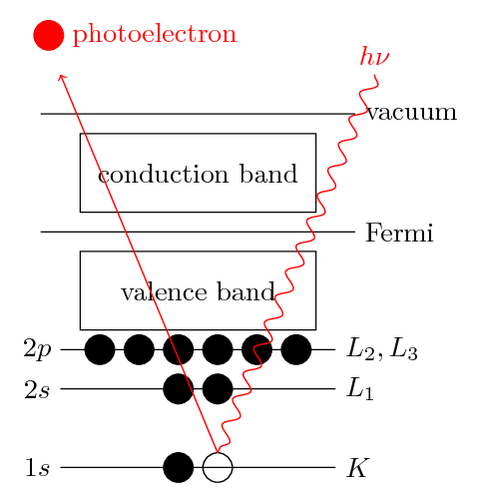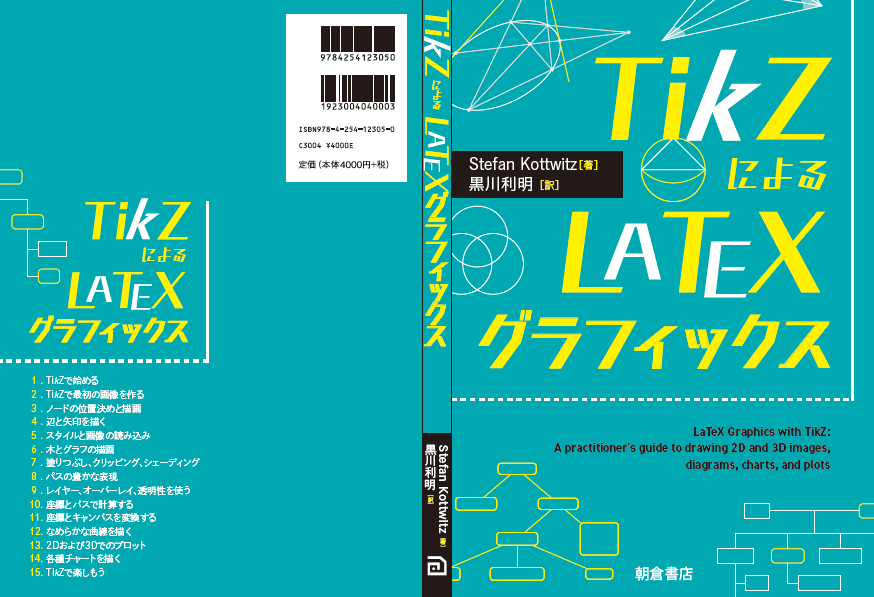A scheme showing the principles of x-ray photoelectron spectroscopy (XPS) sometimes called photoelectron spectroscopy (PES) as well. This is a technique often used in physical chemistry.

Edit and compile if you like:
% Principle of X-ray photoelectron spectroscopy (XPS)
% Author: Mathias Laurin
\documentclass{article}
\usepackage{tikz}
\usepackage[active,tightpage]{preview}
\PreviewEnvironment{tikzpicture}
\setlength\PreviewBorder{5pt}%
\usetikzlibrary{decorations.pathmorphing}
\begin{document}
\begin{tikzpicture}[scale=0.25]
\begin{scope} % Energy levels
\draw (1,0) node[left] {$1s$} --
++(14,0) node[right] {$K$};
\draw (1,4) node[left] {$2s$} --
++(14,0) node[right] {$L_1$};
\draw (1,6) node[left] {$2p$} --
++(14,0) node[right] {$L_2,L_3$};
\draw (0,12) --
++(16,0) node[right] {Fermi};
\draw (0,18) --
++(16,0) node[right] {vacuum};
\end{scope}
\begin{scope} % Valence and conduction bands
\draw (2,7) rectangle node {valence band}
++(12,4);
\draw (2,13) rectangle node {conduction band}
++(12,4);
\end{scope}
\begin{scope} % Electrons
\foreach \x in {3,5,...,13}
\filldraw (\x, 6) circle (.75);
\foreach \x in {7, 9}
\filldraw (\x, 4) circle (.75);
\filldraw (7,0) circle (.75);
%\filldraw(9, 0) circle (.75);
\draw (9, 0) circle (.75);
\end{scope}
\begin{scope}[color=red] % X-rays in, electron out
\draw[decorate, decoration=snake] (17,20)
node[above] {$h\nu$}
-- (9,0.75);
\draw[->] (9,0.75) -- (1,20);
\filldraw (0.4,22) circle (0.75) node[right=5] {photoelectron};
\end{scope}
\end{tikzpicture}
\end{document}
Click to download: principle-of-x-ray-photoelectron-spectroscopy-xps.tex • principle-of-x-ray-photoelectron-spectroscopy-xps.pdf
Open in Overleaf: principle-of-x-ray-photoelectron-spectroscopy-xps.tex


